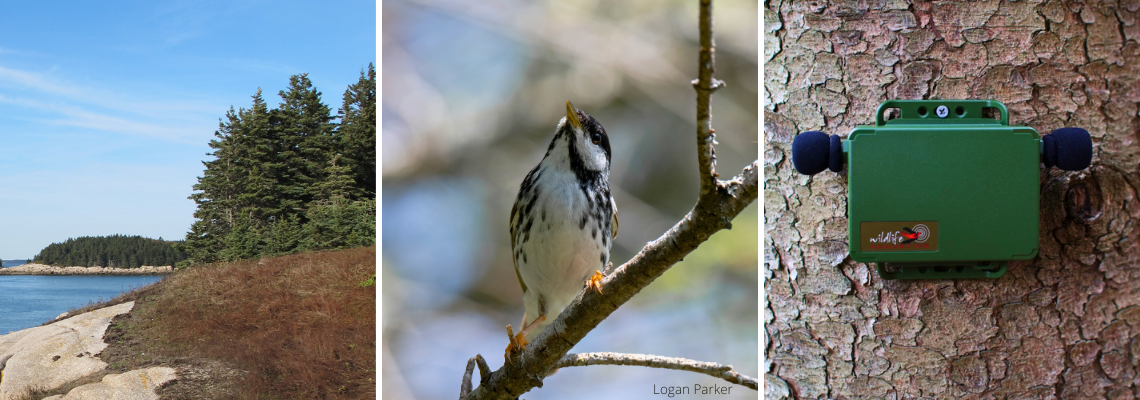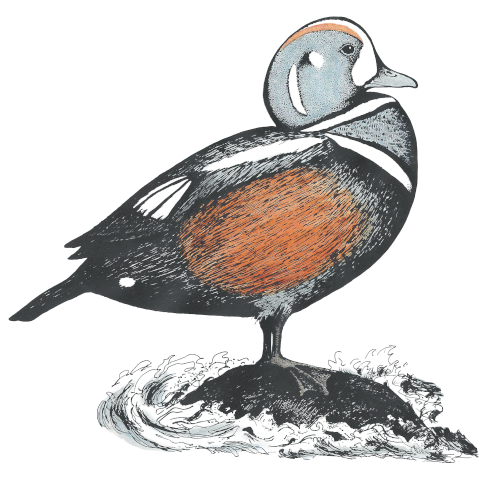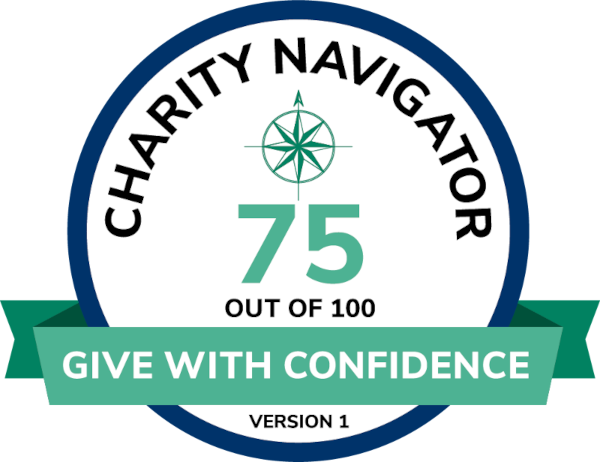Coastal Songbirds

Audio Recording Breeding Songbirds
on Coastal Maine Islands
The Gulf of Maine is changing on many fronts. Marine heatwaves have become increasingly common and Maine birds are facing numerous stressors. Maine's small islands—particularly those along the Downeast coast—may act as important refuge from climate change for boreal bird species—such as Blackpoll Warbler, Swainson’s Thrush, and Boreal Chickadee—that favor breeding in these colder, harsher climates. As the Gulf of Maine warms, there is anecdotal evidence that these small islands may be a vanishing holdout for boreal songbirds in the region, but more research is needed. As Maine adjusts to changes in climate, it will be vitally important that biologists and policymakers have access to baseline data on Maine's boreal songbirds. Without a clear picture of Maine’s coastal species and ecosystems, we won’t know how to protect them in the future.
To address this need, MNHO's postdoctoral researcher, Elliot Johnston, is spearheading a songbird recording project that will:
- Deploy songbird recorders on 12 islands between Penobscot Bay and Cobscook Bay. Recorders will be deployed for months at a time on remote islands to minimize travel hazards, carbon footprint, and disruption to the birds.
- Focus on small, remote coastal islands with boreal habitats that are often under-studied because of access challenges. MNHO has spent decades specializing in these remote habitats.
- Analyze the resulting acoustic datasets so they can be used by the Maine Department of Inland Fisheries and Wildlife and other agencies to inform their management plans for boreal songbirds.
- Develop a free interactive web tool that the public can use to visualize songbirds’ use of small islands in Maine.
The 10 specially designed songbird recorders we need to make this important project a reality cost $5,000 ($500 each). Please, don’t delay - make a contribution before the end of November. Even if it’s just a small donation, your gift will make it possible to purchase these songbird recorders and help to better understand the importance of island habitats for bird species seeking refuge from climate change.
The Groundwork
In July 2023, MNHO staff deployed songbird recorders on two Downeast islands to test this project's sampling methodology. The songbird recorders were retrieved in late August and, although we are still analyzing the results, initial acoustic data from one island contained songs of Swainson’s Thrush and Black-throated Green Warbler. Blackpoll Warblers used to nest on many Maine islands, but anecdotal evidence suggests that they now breed only on two.
Glen sets up a borrowed recorder on Anguilla Island in July, 2023.
(Photo by Troy Canham)
Project Details
• We will deploy songbird recorders on 12 islands between Penobscot Bay and Cobscook Bay. To minimize disturbance to the birds, recorders will be left on the islands and programmed to record at dawn and dusk for several months (May to July) without needing maintenance.
• MNHO will partner with The Nature Conservancy and Maine Coastal Islands National Wildlife Refuge on island selection and access.
• The acoustic datasets will be analyzed with bioacoustics software and we will generate species occurrence and vocal activity estimates for each island over the sampling period.
How You Can Help
- Donate to the project, become a member, or renew your membership with Maine Natural History Observatory (See membership benefits).
- Even if you aren’t able to give a gift today, liking and following the Observatory on Facebook and Instagram will keep you in the loop (and also help us reach more people).
Instagram @MaineNaturalHistory
Facebook @MaineNaturalHistory - We are actively seeking landowner permission to deploy songbird recorders on additional islands along the eastern Maine coast. Please contact us at info@mainenaturalhistory.org if you want to suggest a study site on an island you own or manage.
--------
Photos:
Page head - Inner Sand Island, Blackpoll Warblers (Logan Parker photo), song meter by Wildlife Acoustics.
Button - Boreal Chickadee (Logan Parker photo)







